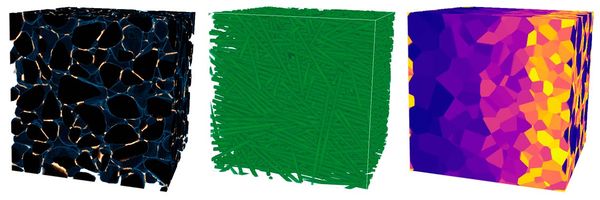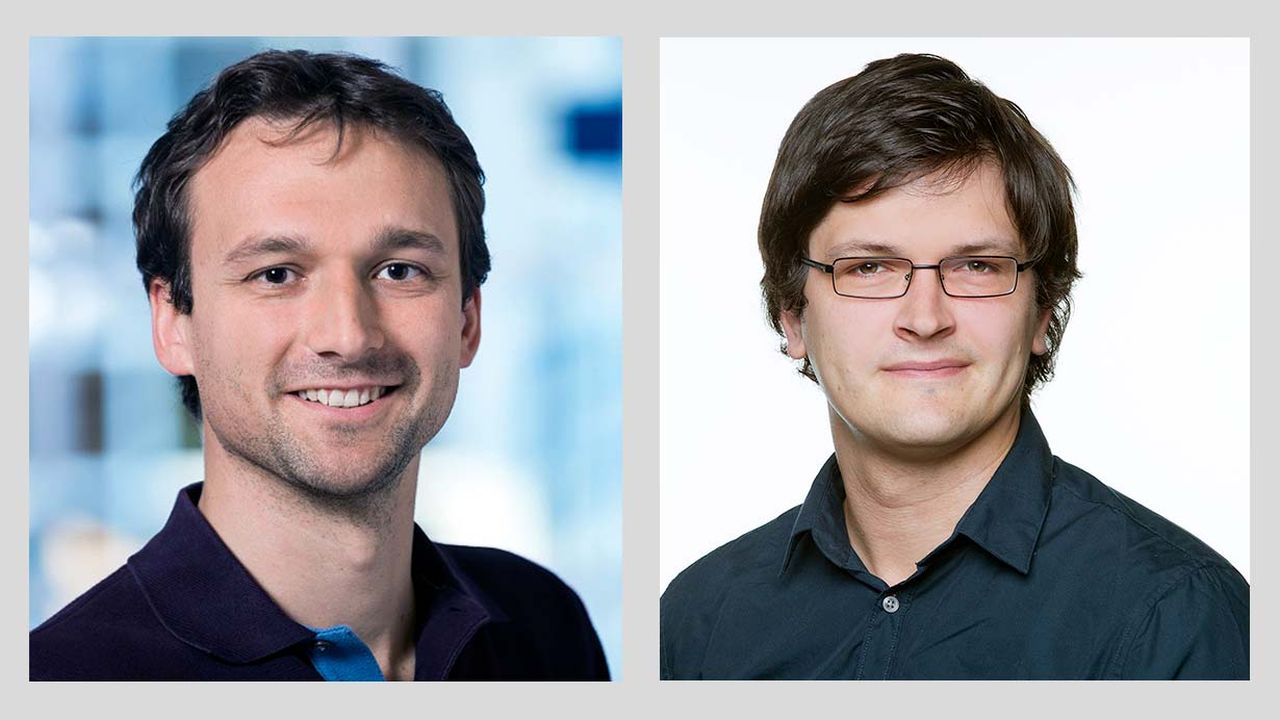The Karlsruhe Institute of Technology (KIT) was successful twice in the latest round of calls for starting grants of the European Research Council (ERC): Johannes Brumm, Professor of Macroeconomics, receives the funding for his project "SOLG for Policy", in which he investigates how long-term fiscal policy measures distribute resources and risks across generations. Matti Schneider, Junior Professor of Computational Micromechanics, simulates properties of industrially relevant materials in his funded project "BeyondRVE."
High-dimensional Stochastic Models Enable the Analysis of Intergenerational Redistribution through Fiscal Policy
Should the debt accumulated during the COVID-19 crisis be reduced promptly through taxation, or is it advisable to leave it to future generations in view of the low real interest rates? How can we ensure that the pension system distributes demographic and other risks more fairly across different generations? Professor Johannes Brumm, holder of the professorship of macroeconomics at KIT’s Institute of Economics, deals with questions like these in his funded project. "The effects of political decisions on government debt, taxation, and spending extend over decades," Brumm explains. "Therefore, whether intentional or not, they redistribute resources and risks across generations." Benefits and costs of policies are subject to great uncertainty, as they depend on productivity growth, global financial conditions, and demographic trends, among other factors. So-called SOLG models (Stochastic Overlapping Generations models) make it possible to analyze the impact of economic policy decisions on different generations while taking uncertainty into account. In his project ”SOLG for Policy", Brumm first works on advancing numerical methods for solving high-dimensional SOLG models in order to be able to include the crucial sources of uncertainty. He then analyzes quantitatively the costs and benefits of economic policy decisions on government debt and pension reforms for current and future generations.

New Method Allows Efficient and Precise Simulation of Microstructures
In order to precisely control the properties of modern materials, different components with favorable properties are combined to form composite materials. Characterizing these materials experimentally often requires a lot of time and money. As mitigation, simulations on a digital twin of the real microstructure replace some of the measurements. "In this context, we face a major challenge," explains Matti Schneider, Juniorprofessor for Computational Micromechanics at KIT’s Institute of Engineering Mechanics. "We would like to measure properties of the material, but determine results that depend on boundary conditions. It's a bit like quantum mechanics, where measuring may change the state. By extracting a part of the material, it becomes more difficult to measure its behavior. But the extraction procedure cannot be avoided. " In his project BeyondRVE, Schneider will investigate groundbreaking new techniques to compensate for these edge effects by modifying the static balance of momentum. This approach promises to be a technological advance for efficient and precise material simulations. Manufacturing-related fluctuations in material properties can be determined more precisely in this way. Lightweight construction technologies in particular will benefit from the developed methodology.

ERC Starting Grants 2021
With starting grants, the European Research Council (ERC) supports excellent early-career researchers who want to start their own independent career and establish their own research group. The selected projects are supported with up to 1.5 million euros each for five years. In the 2021 round of calls, the ERC awarded starting grants for a total of 397 projects in 22 countries with a total volume of 619 million euros. A total of 4066 applications were received; the approval rate was approximately 9.8 percent.
In close partnership with society, KIT develops solutions for urgent challenges – from climate change, energy transition and sustainable use of natural resources to artificial intelligence, sovereignty and an aging population. As The University in the Helmholtz Association, KIT unites scientific excellence from insight to application-driven research under one roof – and is thus in a unique position to drive this transformation. As a University of Excellence, KIT offers its more than 10,000 employees and 22,800 students outstanding opportunities to shape a sustainable and resilient future. KIT – Science for Impact.

